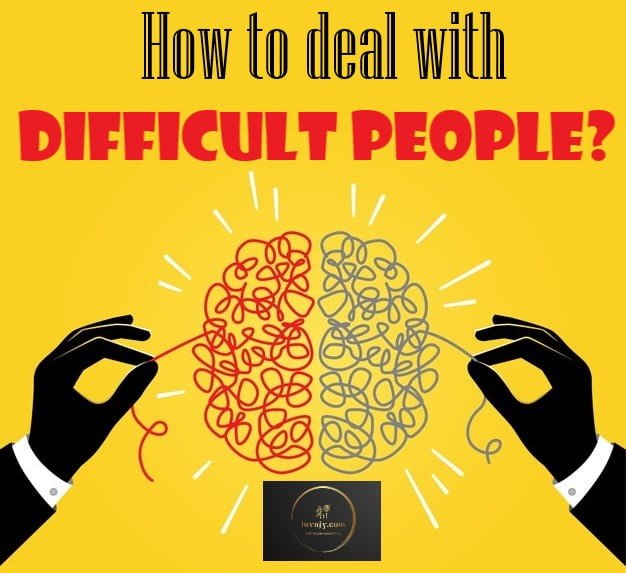Travelling — A Journey of Self-Discovery and Personal Growth
Discover how travel can transform you into a better version of yourself, boosting creativity, resilience, and empathy while offering life-changing personal growth.

Travel is much more than a simple escape from daily life. It’s a transformative experience that has the potential to shape your perspectives, enhance your well-being, and contribute to personal growth in profound ways. Whether it’s a weekend getaway, an adventurous trek, or an extended stay in a foreign country, travel challenges your assumptions and opens doors to self-discovery.
The idea that travel can make you a better person isn’t just a feel-good notion — it’s grounded in science, psychology, and human experience. As someone who’s had the privilege of exploring different parts of world, I would like to share with you the profound impact traveling can make on anyone’s life. How travel shapes you into better versions of yourself, enriching your lives in ways that go beyond the ordinary. From broadening your worldview and cultivating empathy to boosting your creativity and resilience, travel holds the key to unlocking personal potential.

Travel Change the Way You Think
One of the most compelling reasons to travel is its ability to broaden your perspectives and change the way you think. It challenges you assumptions and biases. When you travel to new places, you expose yourself to new ideas, cultures, and ways of life. This cognitive shift has been well-documented in research, and it’s one of the reasons why travel is such a powerful tool for personal growth.
Psychologist Mihaly Csikszentmihalyi, in his studies on the concept of “flow”, suggests that when you travel, especially to unfamiliar places, you engage more deeply with your surroundings, leading to increased focus, heightened awareness, and a richer experience of life. The challenges that arise from navigating foreign environments force you to think differently and solve problems in innovative ways. The novelty and unpredictability inherent in travel stimulate the brain, fostering neuroplasticity — the brain’s ability to reorganize and form new connections.
By engaging with new cultures, languages, and social norms, your brain builds new cognitive pathways, which improves mental flexibility. This cognitive flexibility, in turn, helps you navigate your personal and professional lives with greater creativity and adaptability. Studies, such as those by Dr. Adam Galinsky of Columbia Business School, have shown that exposure to different cultures improves problem-solving abilities and creativity, making travelers more innovative and open-minded.
References:
- Csikszentmihalyi, M. (1990). Flow: The Psychology of Optimal Experience. Harper & Row. Read more here.
- Galinsky, A. (2010). Cultural Intelligence: Individual Interactions Across Cultures. Harvard Business Press. Read more here.
Travel Enhances Emotional Resilience
Beyond cognitive benefits, travel can also provide a powerful boost to your emotional well-being. When you travel, you often step outside of your comfort zones, encountering new challenges, unfamiliar environments, and sometimes difficult situations. These experiences help build resilience — the ability to adapt to adversity, become flexible and recover from challenges.
A study published in Psychological Science found that individuals who engage in novel experiences, such as travel, report greater life satisfaction and an increased sense of well-being. The unpredictability of travel — from lost luggage to cultural misunderstandings — forces you to develop problem-solving skills, patience, and perseverance. In essence, travel teaches you to thrive in the face of uncertainty, equipping you with tools to handle stress and bounce back from setbacks in your personal and professional lives.
The resilience gained through travel doesn’t just apply to minor inconveniences like a delayed flight or missing train. It extends to your ability to handle major life challenges. As you learn to navigate the complexities of foreign cultures, new languages, and unexpected situations, you develop the mental toughness necessary to cope with challenges back home.
References:
- Park, C. L., & Folkman, S. (1997). Meaning in the context of stress and coping. Psychological Inquiry. Read more here.
- Cohen, S., & Wills, T. A. (1985). Stress, social support, and the buffering hypothesis. Psychological Bulletin. Read more here.
Travel Fosters Empathy and Compassion
One of the most profound benefits of travel is its ability to cultivate empathy. When you experience life from someone else’s perspective, you develop a deeper understanding of their struggles, joys, and aspirations. Whether you’re volunteering in a rural village, exploring a bustling metropolis, or simply engaging with locals in a small town, travel gives you the opportunity to connect with people on a human level. It introduce you to diverse cultures fostering empathy and understanding.
A study by Dr. John A. Bargh at Yale University found that people who have frequent exposure to diverse cultures tend to show higher levels of empathy and are more likely to act altruistically. Immersing yourself in different cultural contexts not only reduces stereotypes but also increases the likelihood of forming genuine, compassionate relationships. Travel forces you to see the world from different viewpoints, breaking down the walls of prejudice and broadening your understanding of the human condition.
References:
- Bargh, J. A., & Morsella, E. (2008). The unconscious mind. Science. Read more here.
- Piliavin, J. A., & Charng, H. W. (1990). Altruism: A review of recent theory and research. Annual Review of Sociology. Read more here.
Travel Boosts Creativity and Problem-Solving Skills
Travel has been shown to stimulate creativity. As you immerse yourself in a new environment, your brain is bombarded with new sights, sounds, and experiences. This influx of novelty triggers creative thinking by forcing your brain to make new associations and solve problems in unconventional ways.
Research conducted by Dr. Adam Galinsky and his team suggests that people who are exposed to multiple cultures or travel frequently are better at thinking outside the box and finding innovative solutions to problems. Travel encourages you to approach challenges with a fresh perspective, whether it’s trying to communicate in a foreign language, navigating unfamiliar transport systems, or figuring out how to adapt to a new cultural norm.
Moreover, travel often provides the mental space for introspection and creative thinking. Escaping the daily grind of work, social pressures, and responsibilities gives your minds the opportunity to relax and reset. This time away from routine can spark new ideas, artistic inspiration, and breakthroughs in your personal and professional lives.
References:
- Galinsky, A., & Maddux, W. W. (2009). Cultural borders and mental barriers: The relationship between living abroad and creativity. Psychological Science. Read more here.
- Leung, A. K., Maddux, W. W., Galinsky, A. D., & Chiu, C. Y. (2008). Multicultural experience enhances creativity: The when and how. American Psychologist. Read more here.
Travel Enhances Your Sense of Purpose and Personal Fulfillment
For many, travel becomes a path to discovering a deeper sense of purpose. Whether you’re exploring ancient ruins, trekking through lush forests, or sitting in a quiet temple, travel can provide moments of deep reflection that help you reevaluate your priorities and what you want out of life.
Studies in positive psychology, such as the work by Dr. Martin Seligman, emphasize the importance of engaging in activities that provide meaning and fulfillment. Travel, particularly when it involves experiencing new cultures, contributing to the well-being of others, or simply observing the natural world, can bring about these profound moments of personal insight. Many travelers report a renewed sense of direction after embarking on life-changing trips, gaining a clearer understanding of what truly matters.
Moreover, travel allows you to disconnect from the business of daily life, offering a space for introspection and mindfulness. Whether it’s a solo journey to a quiet retreat or an adventurous backpacking trip, these experiences encourage self-awareness and can help you better understand your values, desires, and purpose in life.
References:
- Seligman, M. E. P. (2002). Authentic Happiness: Using the New Positive Psychology to Realize Your Potential for Lasting Fulfillment. Free Press. Read more here.
- Ryan, R. M., & Deci, E. L. (2001). On happiness and human potentials: A review of research on hedonic and eudaimonic well-being. Annual Review of Psychology. Read more here.
Travel Creates Lifelong Memories and Connections
One of the most beautiful aspects of travel is the way it connects us to people from all walks of life. When you venture to a new place, especially one where you don’t share a common language or cultural background, you often find that strangers can quickly become friends. These deep, meaningful connections — whether made over a shared meal, a hike through nature, or a conversation with a local guide — create lasting memories that stay with you long after your journey ends.
Travel creates lifelong memories and connections with strangers-turned-friends.
Wrapping Up!
In a world that constantly challenges you with change, uncertainty, and complexity, travel provides a unique opportunity to evolve, learn, and grow. The cognitive, emotional, and social benefits of travel go far beyond the simple act of visiting a new place. From boosting creativity and resilience to fostering empathy and self-discovery, travel is an essential tool for personal transformation.
So, if you’re looking to become a better version of yourself — whether it’s improving your mental flexibility, enhancing your emotional resilience, or gaining a deeper sense of purpose — consider the transformative power of travel. Every new destination offers an opportunity to grow, challenge yourself, and see the world — and yourself — in a whole new light.






